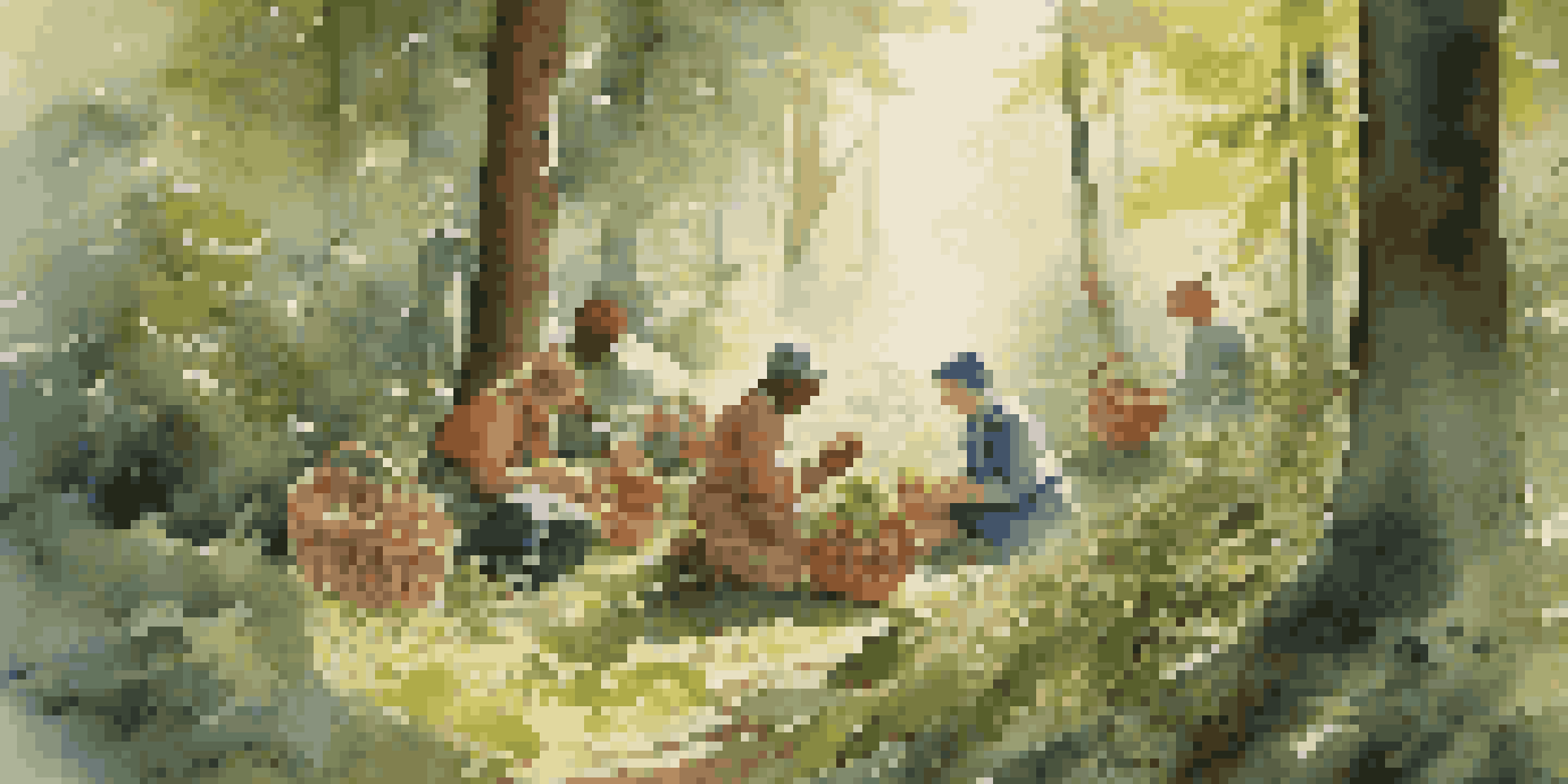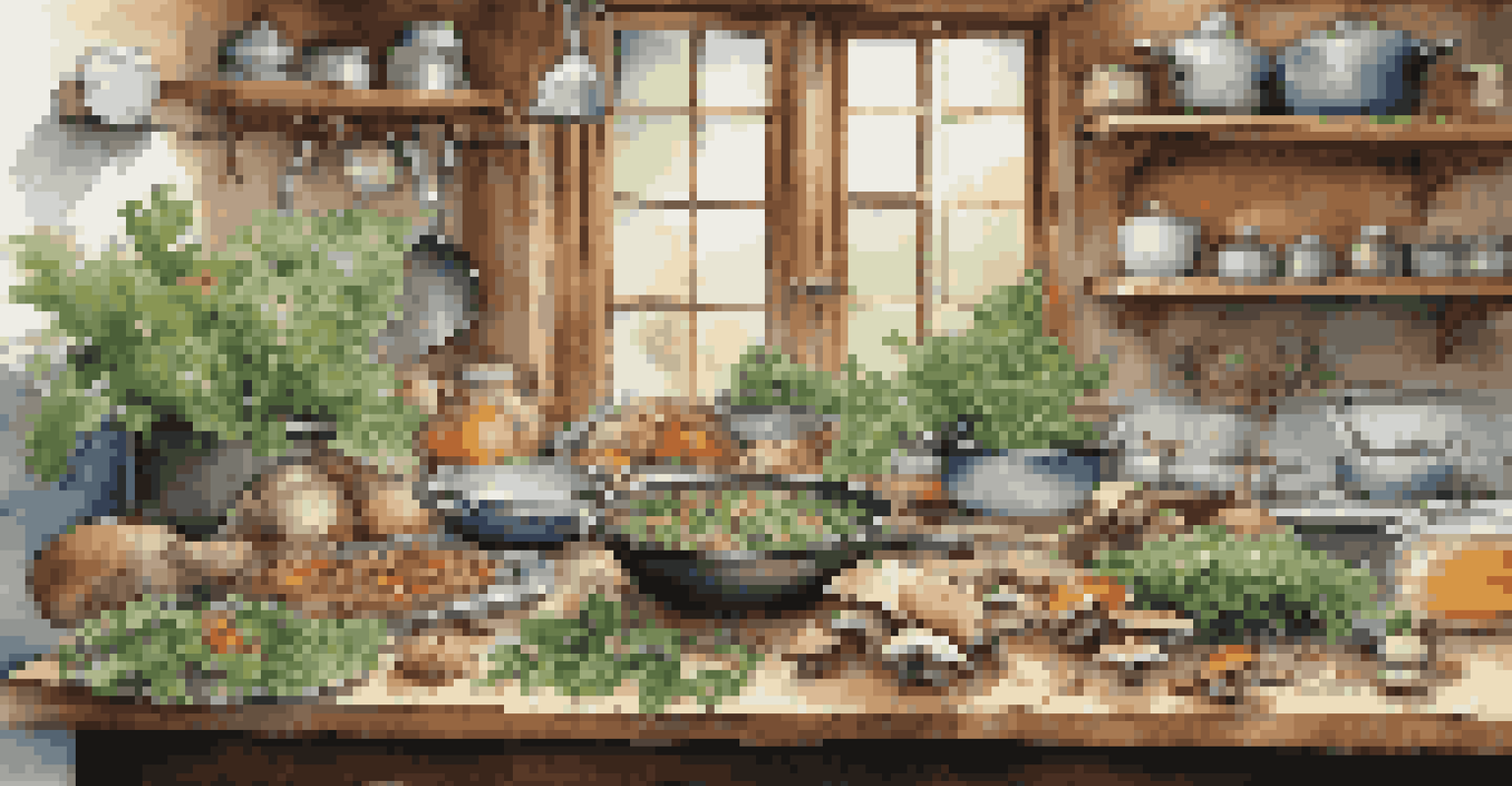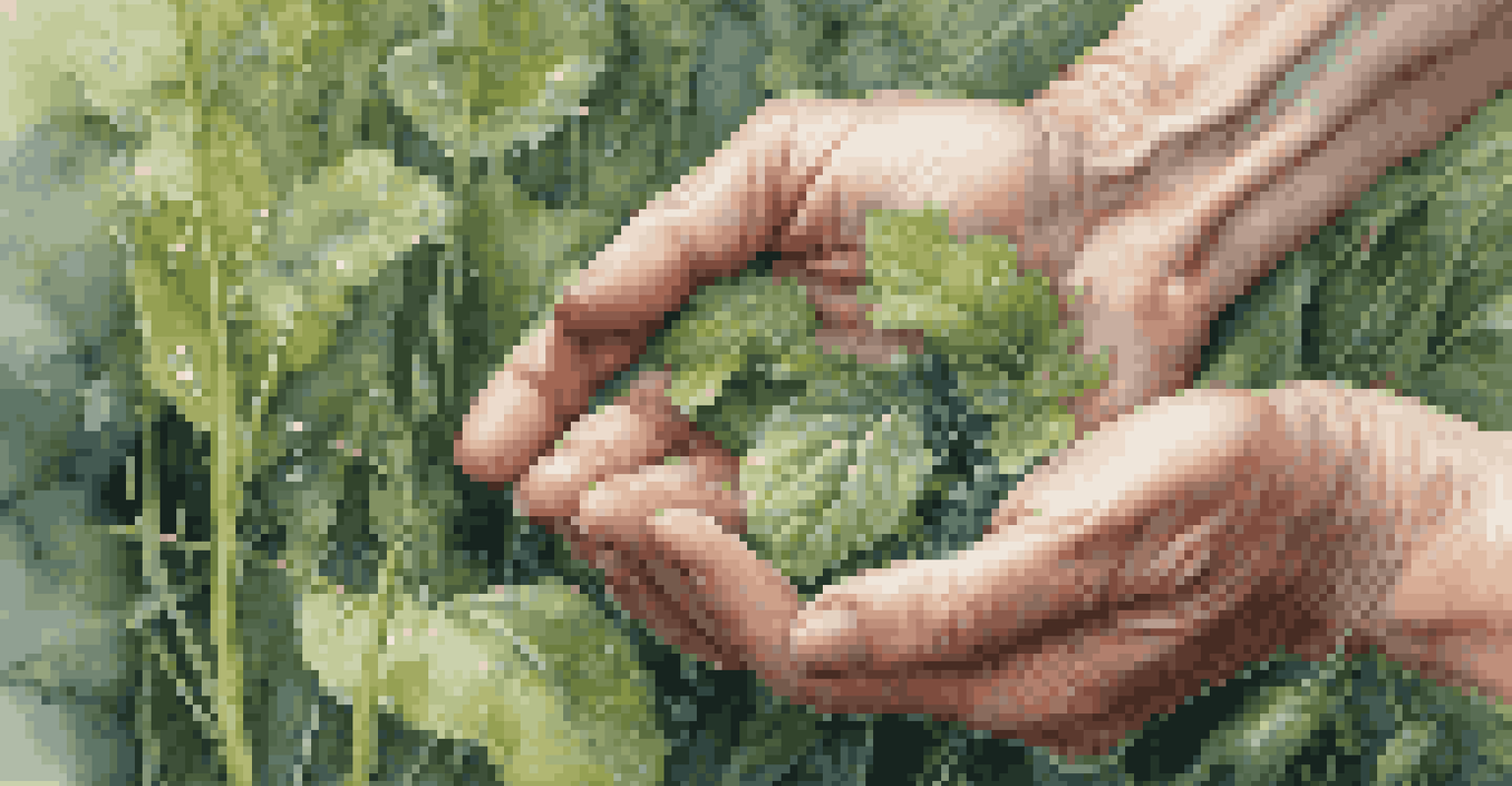Foraging and Cooking Classes: Hands-On Learning Experiences

What Are Foraging and Cooking Classes?
Foraging and cooking classes combine the excitement of gathering wild ingredients with the art of preparing them. These hands-on experiences allow participants to learn about edible plants, mushrooms, and herbs found in nature. It's not just about food; it's about connecting with the environment and understanding where our meals come from.
The act of foraging is a reminder of our connection to the land and the importance of knowing where our food comes from.
In these classes, you'll often venture into nearby woods or fields to discover nature's pantry. Guided by knowledgeable instructors, you'll identify plants and learn which ones are safe to eat. This immersive experience not only builds your culinary skills but also deepens your appreciation for local ecosystems.
After foraging, participants typically return to a kitchen setting to transform their finds into delicious dishes. This part of the class highlights the importance of utilizing fresh, seasonal ingredients, making each meal unique. It's a fantastic way to foster creativity in cooking while enjoying the fruits of your labor.
Benefits of Foraging and Cooking Classes
One major benefit of these classes is the hands-on learning experience they provide. Instead of just reading about foraging or watching videos, you actively engage in the process. This experiential approach helps reinforce your knowledge and builds confidence in identifying and using wild ingredients.

Additionally, foraging promotes sustainability and a deeper connection to the environment. By understanding the local flora, you develop a sense of responsibility for nature and learn to appreciate its bounty. This can lead to a more mindful approach to food sourcing, encouraging you to choose local and seasonal options.
Hands-on Learning Experience
Foraging and cooking classes provide an immersive, hands-on approach that builds confidence in identifying and using wild ingredients.
Finally, these classes are a great way to meet like-minded individuals. Sharing the experience of discovering and cooking together fosters a sense of community. You'll leave with not only new skills but also new friends who share your passion for food and nature.
Who Can Participate in These Classes?
Foraging and cooking classes cater to a wide range of participants, from beginners to seasoned chefs. If you're curious about nature and enjoy cooking, these classes can be a perfect fit. No prior experience is necessary, making it accessible for anyone interested in expanding their culinary repertoire.
Cooking is not just about ingredients, recipes, and cooking. It's about harnessing imagination, empowerment, and creativity.
Families often find these classes enjoyable, as they provide a fun and educational outing. Children can learn about nature while developing a love for cooking, making it a memorable bonding experience. Many classes even tailor their activities to suit different age groups, ensuring everyone has a great time.
Even experienced cooks can benefit from these classes by learning new techniques and ingredients. Foraging opens up a world of flavors that may not be found in grocery stores. This fresh perspective can inspire creativity in the kitchen and elevate your culinary creations.
Essential Skills Learn in Foraging Classes
One of the key skills you’ll develop in foraging classes is plant identification. This knowledge is crucial for safely gathering edible items from the wild. You'll learn to differentiate between similar-looking plants, some of which may be toxic, and gain confidence in your foraging abilities.
Another important skill is understanding the seasonal availability of various plants. Foraging teaches you to recognize what ingredients are ripe for picking at different times of the year. This knowledge not only enhances your cooking but also encourages you to embrace seasonal eating.
Connection to Nature
These classes foster a deeper appreciation for local ecosystems and promote sustainable food sourcing.
Lastly, you'll learn how to harvest responsibly and sustainably. Understanding how to take only what you need ensures that wild plants can continue to thrive. This respect for nature is a vital lesson that extends beyond the class and into your everyday life.
Cooking Techniques Taught in Cooking Classes
Cooking classes often emphasize techniques that enhance the natural flavors of foraged ingredients. From simple sautéing to more complex methods like pickling or fermenting, you’ll learn how to elevate your dishes. These skills are particularly valuable when working with fresh, wild ingredients that deserve to shine.
Participants also get to experiment with various cooking methods, such as grilling, roasting, or steaming. Each technique brings out different flavors and textures, allowing for creativity in the kitchen. This hands-on practice helps solidify your understanding of how cooking choices affect the final dish.
Moreover, these classes often highlight the importance of presentation. Learning how to plate your creations can make a significant difference in how a dish is perceived. A beautifully presented meal not only tastes better but also enhances the overall dining experience.
Finding the Right Class for You
When searching for foraging and cooking classes, consider your location and the types of ingredients you’re interested in. Different regions offer unique foraging experiences, so it’s worthwhile to research local options. Many classes also focus on specific themes, such as wild mushrooms or herbs, allowing you to tailor your experience.
Reading reviews and testimonials from past participants can provide insight into the quality of the classes. Look for instructors who are passionate and knowledgeable about foraging and cooking, as this will enhance your learning experience. A good instructor will not only teach you techniques but also inspire you to explore further.
Accessible for All Skill Levels
Foraging and cooking classes welcome everyone, from beginners to seasoned chefs, making them a great family-friendly activity.
Lastly, don’t forget to consider the class size. Smaller classes often provide more personalized attention, allowing for a more interactive experience. A comfortable setting encourages questions and discussions, making your foraging and cooking journey even more enjoyable.
The Future of Foraging and Cooking Classes
As interest in sustainable living and local food sources grows, the popularity of foraging and cooking classes is on the rise. People are increasingly seeking ways to connect with their food and understand its origins. This shift in mindset is likely to lead to more diverse and innovative classes in the future.
Technological advancements also play a role in shaping these experiences. Online platforms are making it easier to access information about foraging and cooking techniques. Virtual classes can complement in-person experiences, allowing participants to continue learning at home.

Ultimately, the future of foraging and cooking classes looks promising. As more people embrace this hands-on approach to food, we can expect a greater appreciation for nature and its gifts. This movement not only nurtures our culinary skills but also fosters a deeper connection to our environment.